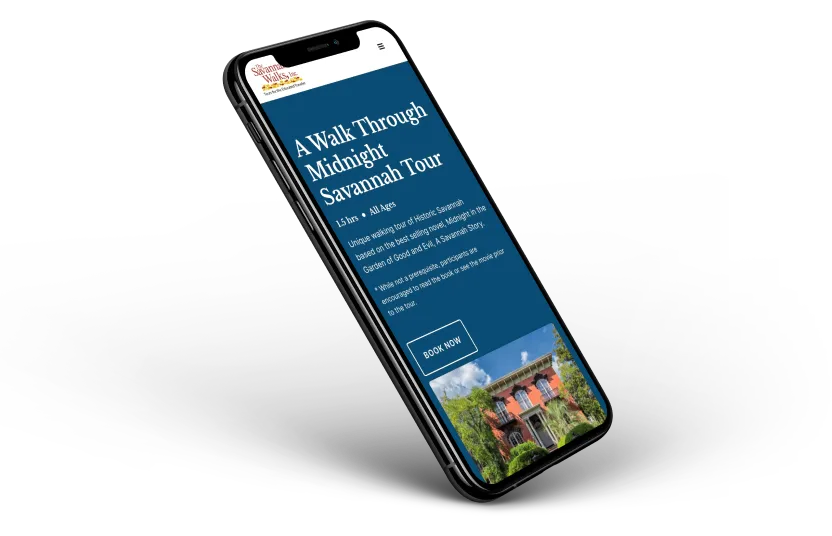How To Rank Your Website Higher In Google's Search Results

How can you rank your website higher in Google search results? There's no one-size-fits-all answer to this question, as the best way to improve your ranking on Google depends on the nature of your business and website.
However, if you're not happy with where your website ranks in Google's search results, there are a number of things you can do to try to improve it. Some of these techniques are easy and free, while others require more time and effort.
But even if you're not an SEO expert, there are still a few simple things you can do to improve your website's ranking by using these seo strategies.
Why should you try to improve your website's ranking?
1. Higher rankings mean more traffic
If your website ranks higher in Google's search results, you'll get more organic traffic. And more traffic means more potential customers or clients. So if you want to increase your chances of making a sale or landing a new client, improving your SEO ranking is a good place to start.
2. Better rankings can lead to improved brand awareness and reputation
Being visible in Google's search results can help improve your brand awareness and reputation. When people see your website come up for relevant searches, they'll start to associate your brand with those keywords. Over time, this can help build trust and credibility with potential customers or clients.
3. Improved rankings can mean more qualified leads and conversions
If your website ranks higher for relevant searches, you're more likely to get clicks from people who are actually interested in what you have to offer. That means more qualified leads and potential customers or clients contacting you about your product or service. In other words, improved rankings can directly impact your bottom line.
How can you measure your SEO effectiveness?
There are several paid tools that you can use to help you understand how your search engine optimization efforts are going. Tools such as SEMrush and Ahrefs are among the best and most popular search engine optimization tools. But they can get pricey.
There are a few tools that are free that you can use to help you understand if your work is paying off or not. Or where you should focus more of your efforts.
Google Search Console
One free SEO tool that you can use to track your SEO efforts is Google Search Console. GSC will tell you what pages are ranking and in what position. It will also alert you to pages that are not being indexed, or included in Google’s database. Reasons for why your page is not indexed can get complicated, but GSC will often tell you what has happened.
Google Search Console is also where you go to submit your website’s sitemap, so Google knows what pages on your website to index.
Google Analytics
Another free SEO tool that will help you measure your organic rankings is Google Analytics. You should install the tracking code on your website and begin tracking your traffic analytics on your website. This tool will help you understand a number of things.
One is bounce rate, which is how long someone stayed on your site. If you find that a number of people click on your website only to click right off, the bounce rate for that page will be high.
A high bounce rate should send up red flags. It means that the Title tag and the content don’t match, that the content on the page is poorly presented, or the page loads too slowly. All these are factors that can affect bounce rates. You should look at your Title tag, meta description, and on-page content to see what is causing your visitors to bounce from your site.
Rank higher by focusing on on-page SEO
What is on-page SEO and how does it help you rank higher?
On-page SEO is the process of optimizing your website's content and structure to improve your chances of ranking higher in Google's search results. Here are some things you can do to improve your on-page SEO:
1. Optimize your title tags and meta descriptions.
Your title tag is the text that appears in the search results when someone searches for a keyword that you're targeting. Make sure your title tags are clear, concise, and include the target keyword.
Your meta description is the short description that appears under your title in the search results. Again, make sure it's clear and concise, and include the target keyword if possible. While the meta description is not a direct ranking factor, it does indirectly affect your pages click through rate (CTR), as it is the blurb that entices people to click or keep scrolling to the next result.
2. Improve your website's structure.
A well-structured website is easier for Google to crawl and index, which can help your rankings. Use clear and consistent navigation, use headings and subheadings to break up your content, and use internal links to link related pages on your site together.
A good rule of thumb is to keep your site’s structure as flat as possible. Try to keep your visitor’s clicks to two clicks to reach a webpage. In other words, they shouldn’t have to click through multiple pages to access the information they want. This will frustrate visitors.
Also, try your best to have internal links to your web pages. Pages should be linked together in a web-like fashion so that they naturally lead your visitors to one another.
You should avoid orphaned pages, if at all possible. Orphaned pages are pages that are not able to be accessed through the main site navigation or by clicking on a link on your website. This keeps these pages from being able to be found by website visitors naturally as they explore your website. As well as those pages don’t pass any link juice on to other pages on your website.
You might have a good reason for this, maybe you are building a landing page for a PPC campaign. In that case, it can be ok to have an orphaned page, but you want to avoid this if at all possible.
3. Use relevant keywords throughout your content.
Use keywords throughout your content (in the headlines, in the body text, in the alt text of images, etc.) that are relevant to what people are searching for. But don't overdo it - too many keywords will result in keyword stuffing, which will actually hurt your rankings.
A good rule of thumb is to use one major keyword per page. The subheadings on that page should support the overall idea of the main keyword.
Think back to middle school where you were first learning to write a five paragraph paper. Your teacher had you come up with the main idea for the paper. Then you had to write out headings that supported the main idea. Under each of those headings, you had to write a paragraph or two that expanded on the subpoint. A web page should be no different.
That also means that every web page should have a different main idea or title. In other words, every page on your website should have a different focus. That focus doesn’t have to be wildly different. It could be similar in focus. But it should be different enough to keep the pages from competing with each other in the search results for any given topic.
4. Optimize your images.
In addition to using keywords in the alt text of images, you can also optimize your images so that they load faster.
There are a number of good tools you can use to optimize your images for faster loading times. A couple of tools I use on a daily basis are:
These tools are free and will help you optimize your images for faster loading times.
When optimizing your images, you should target 100kb or less for each image. One way to reach that target and still have a high quality image is to make sure that you are not using images with dimensions that are greater than needed for the web page.
For example: If the image you are using is only 500 x 500 px on your web page. You shouldn’t upload an image that is 2000 x 2000 px. You don’t need the extra 1500 pixels.
Make sure to resize your images before optimizing and uploading them for the web.
Focus on off-page SEO to improve your rankings in search engines.
What is off-page SEO and how does it help you rank?
Off-page SEO is the process of optimizing a website for higher search engine rankings. One major way to do off-page SEO is by building links to your website from other websites. The more high quality or authoritative links that point to a website, the higher it will rank in search results.
A website with a DA (domain authority) of 5 is not going to help you improve in the search results like one that has a domain authority rating of 70 or higher.
A website's authority score doesn't happen overnight. It takes time and high quality content that others want to read, share, and link to in order to increase your domain authority score.
One metric that can help your score is if a website with a high domain authority links to you. For example: if the New York Times linked to one of your articles, and the link was a do-follow link, your authority would increase. That's because Google's algorithm would deem your website a great resource. If your content is good enough for the New York Times to link to, it must be good content others would want to read.
On the other hand, a ton of links from a low-quality or spammy website will not give you a rankings boost. In fact, it might hurt your overall ranking.
Building links can be a time-consuming process, but it's worth it if you want your website to rank higher in search results. So it’s important to focus on getting quality over quantity when it comes to building backlinks.
If you're not sure where to start, consider hiring an SEO agency or consultant to help you with your off-page SEO efforts.
Focus on Social Media for indirect SEO performance
Does social media help with SEO?
Social media definitely helps with SEO. But how? Links on social media are not do-follow links. In other words, they aren't passing their link juice on to you like a link from a major publication.
While it is true that Facebook or Twitter are not going to directly help your domain authority, it is true that posting content on social media is a great way to get backlinks to your website.
Here is how you build links through social media
First, write super high quality content that answers a question people in your niche are asking.
Second, post that article on your social channels, focusing on groups that would find your content relevant.
Third, engage with those who are reading your article and commenting on your post. Be genuine and helpful. Overtime, you will be seen as an expert in that community.
The next time they write an article, guess where they are going to go for facts, stats, points, and counterpoints? You guessed right, your website or blog.
Bonus tip, if you come across an article that is much like your own, you might comment on it, share a link to your article, and ask them to consider the facts you shared or counterpoints you made in the article.
If they engage, you might take it a step further and ask them to link to your article regarding one of the facts or counterpoints from your own article.
Focus on directory listings to help grow your domain authority score.
What are directory listings and how do they help with SEO?
Directory listings are basically just lists of websites that have been organized into categories. So, if someone was looking for a website about dog breeds, they might find a directory listing that has a bunch of different websites about dogs, all organized into different categories like "Breeds", "Training", "Care", etc.
Using directory listings can be helpful for SEO because it can help you get your website in front of people who are specifically looking for websites about your topic.
For example, if you have a website about German Shepherds and you submit it to a directory listing that is specifically for dog breeds, then you know that anyone who comes across that listing is already interested in dogs and is likely to be more receptive to your website than someone who stumbles upon it by accident.
Of course, simply being listed in a directory isn't going to guarantee that your website will rank higher in Google's search results. But, if you combine this strategy with other SEO techniques, it can be an effective way to help improve your visibility and draw more traffic to your site.
Conclusion
These tips will help you to improve your search ranking. It won’t happen overnight, which is why SEO is often called a long game. But eventually you will reap the benefits of all your hard work.
When that happens, you will pay less to acquire each client or customer, which will ultimately result in more profits for your business.
The great thing about organic search traffic is that it can last for years as opposed to paid search traffic which often drops off once you quit paying for the ad.
Invest your time and resources in SEO. You won’t regret it in the long run.
Need Help?
If you need help developing an SEO strategy for your website, or if you need help designing and developing your website, reach out. We'd love to talk with you about your project. Here are all the ways you can contact us. We look forward to helping you rank higher in Google's search results soon!
End to End Webflow Design and Development Services
From Web Design and SEO Optimization to Photography and Brand Strategy, we offer a range of services to cover all your digital marketing needs.

Webflow Web Design
We design custom Webflow websites that are unique, SEO optimized, and designed to convert.
Webflow Support
Get dedicated design and development support from a Webflow Professional Partner without the overhead of a full-time hire or the hassle of one-off project quotes.
Claim Your Design Spot Today
We dedicate our full attention and expertise to a select few projects each month, ensuring personalized service and results.







